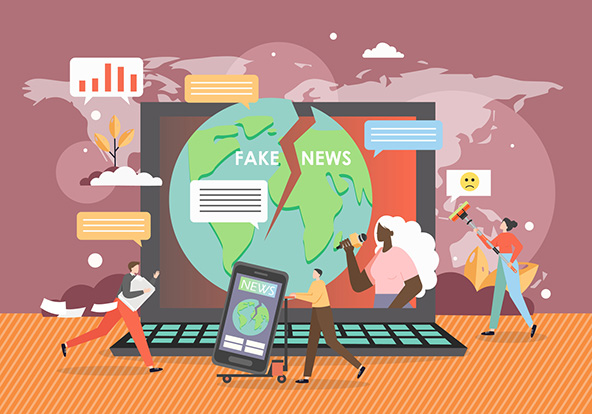I’m old enough to remember someone saying it would be a good idea to connect lots of personal computers together… Call it internetworking if you will.
Today, accessible information sharing comes with the downside of some of it being spectacularly wrong. But misinformation is not as impactful a problem as the deliberate corruption of narratives designed to undermine public trust to instill apathy, exude powerlessness or ignite passion.
Last year we worked with NATO and the Canadian Forces College to complete a research report on disinformation for the DND and “Her Majesty the Queen”. We observed that three destructive elements of modern cyberwarfare are distinct from malware and cyber-attacks. Instead, they focus on information operations designed to

1. Suppress (trusted sources and genuine messaging)
2. Misdirect (through distraction and volumetric attacks)
3. Disinform (by replacing good info with corrosive data)
Once trust is shaken away from legitimate sources, it can be established in alternative facts. Information warfare is intrinsic to all modern conflict.
This is why it is now crucial for young people to learn the many facets of misdirection, understanding psychology, detecting newspeak and debunking conspiratorial claims… and not just because it’s Global Media and Information Literacy Week.
I believe that critical thinking, investigative methods and digital analysis absolutely need to be taught in schools at all ages, particularly with the daily advances in artificial intelligence, AI deepfakes and other digital fabrication methods that already loosen the foundations of trust underpinning our society.

